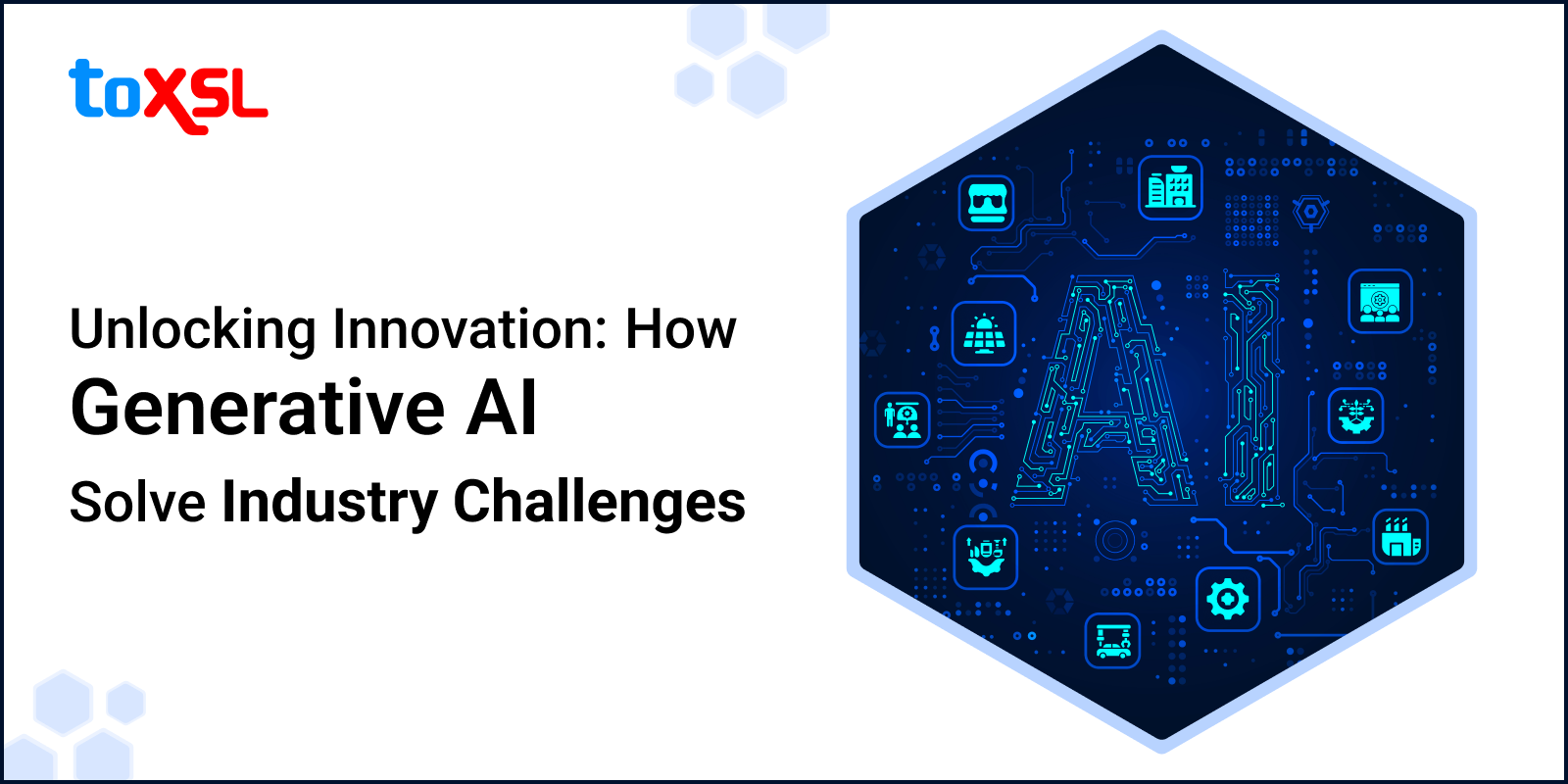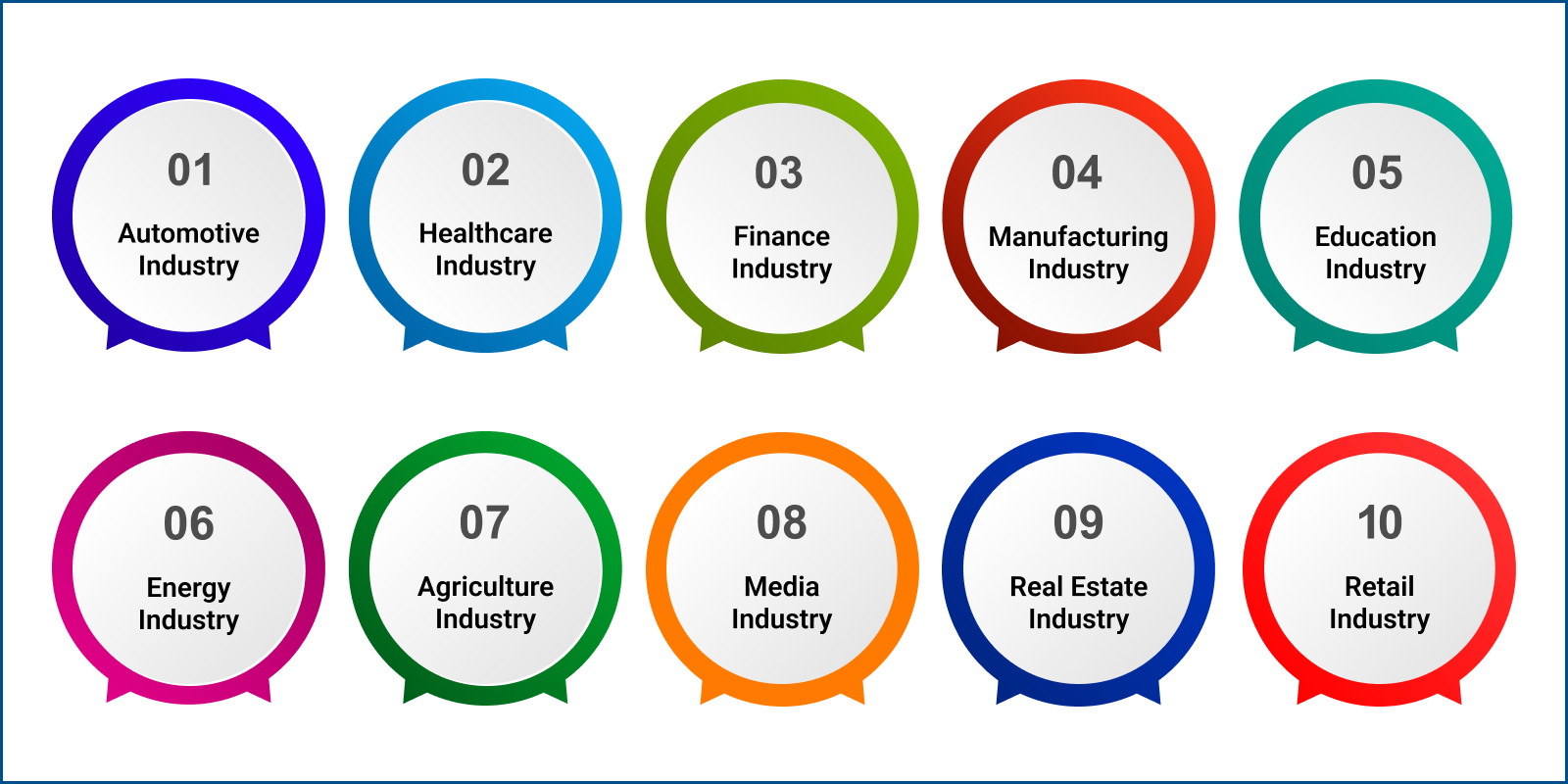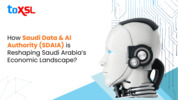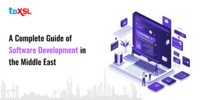- Dec 11, 2024
- Generative AI
- 2803
Share this post on:

In today’s revolutionary times, technology is undergoing constant transformation, with data becoming the new king. Amidst these advancements, businesses encounter numerous obstacles. At times, the path to solutions may appear intricate, but in the world of business and research, we have researchers and scientists who leave no stone unturned to figure out solutions to business problems. That’s where Generative AI (Gen AI) made its way into the realm of business.
Recent statistics indicate that 56% of United States workers surveyed have already begun utilizing GenAI in their daily tasks. Out of the 56% of U.S. workers who have adopted GenAI, 75% of them specifically aim to automate tasks and improve work communications. By automating repetitive tasks, employees can focus more on critical thinking and problem-solving, leading to better overall job performance.
According to a study conducted by Salesforce, a significant majority of users in the GenAI (General Artificial Intelligence) sphere are Millennials and Gen-Z. To be precise, the research indicates that this demographic accounts for 65% of the total GenAI user base.
According to the discussed stats, it is clear how Generative AI has emerged as a powerful tool in the history of Artificial Intelligence and is solving some of the most pressing challenges across various industries. From healthcare to finance, marketing to entertainment, Generative AI is revolutionizing the way businesses operate and innovate.
Evolution of Generative AI
Generative AI tools have come a long way since their inception. Initially, these tools were limited in their capabilities and often produced outputs that lacked realism and coherence. However, with the advent of deep learning techniques such as Generative Adversarial Networks (GANs) and Variational Autoencoders (VAEs), generative AI has made significant strides in generating more convincing and sophisticated content.
GANs, introduced by Ian Goodfellow and his colleagues in 2014, have been particularly instrumental in advancing generative AI. GANs consist of two neural networks - a generator and a discriminator - that work together to generate realistic outputs. The generator creates new content, while the discriminator evaluates the generated content for authenticity. Through this adversarial training process, GANs have been able to produce remarkably realistic images, videos, and text.
Generative AI: Navigating Business Challenges
Let us now dive deep into the blog and explore how Generative AI is being used to address top industry challenges, the role of Generative AI development companies, the impact of Generative AI tools, the rise of Large Language Models, and the future potential of Gen AI.

1. Automotive Industry: Generative AI can help automotive companies create personalized marketing materials, such as ad campaigns, product descriptions, and website content. By using natural language processing (NLP) tools, generative AI can generate high-quality content that is tailored to specific audiences and markets. This can lead to increased customer engagement and conversions, ultimately driving business growth.
2. Healthcare Industry: Generative AI can help healthcare providers create personalized patient treatment plans, medical reports, and prescriptions. By analyzing large datasets of medical records and literature, Generative AI can generate accurate and informative content that helps doctors make more informed decisions. This can lead to better patient outcomes and improved overall Healthcare quality.
3. Finance Industry: Generative AI can help financial institutions create personalized investment portfolios, financial reports, and market analyses. By analyzing large datasets of financial data and trends, Genrative AI can generate accurate and informative content that helps investors make more informed decisions. This can lead to increased profitability and reduced risk.
4. Manufacturing Industry: Generative AI can help manufacturers create personalized product descriptions, product instructions, and marketing materials. By using NLP tools, generative AI can generate high-quality content that is tailored to specific products and markets. This can lead to increased customer satisfaction and loyalty, ultimately driving business growth.
5. Education Industry: Generative AI Development Company in Dubai can help educational institutions create personalized learning materials, such as course outlines, lesson plans, and student assessments. By analyzing large datasets of educational data and trends, generative AI can generate accurate and informative content that helps teachers and students alike. This can lead to improved learning outcomes and increased academic success.
6. Energy Industry: Generative AI can help energy companies create personalized marketing materials, such as advertisements, product descriptions, and website content. By using NLP tools, generative AI can generate high-quality content that is tailored to specific audiences and markets. This can lead to increased customer engagement and conversions, ultimately driving business growth.
7. Agriculture Industry: Generative AI can help agricultural companies create personalized marketing materials, such as advertisements, product descriptions, and website content. By analyzing large datasets of agricultural data and trends, generative AI can generate accurate and informative content that helps farmers and ranchers make more informed decisions. This can lead to improved crop yields, reduced waste, and increased profitability.
8. Media Industry: Generative AI can help media companies create personalized content, such as news articles, social media posts, and website content. By using NLP tools, generative AI can generate high-quality content that is tailored to specific audiences and markets. This can lead to increased customer engagement and conversions, ultimately driving business growth.
9. Real Estate Industry: Generative AI can help real estate companies create personalized marketing materials, such as advertisements, property descriptions, and website content. By analyzing large datasets of real estate data and trends, generative AI can generate accurate and informative content that helps buyers and sellers make more informed decisions. This can lead to increased customer satisfaction and loyalty, ultimately driving business growth.
10. Retail Industry: Generative AI can help retail companies create personalized marketing materials, such as advertisements, product descriptions, and website content. By using NLP tools, generative AI can generate high-quality content that is tailored to specific audiences and markets. This can lead to increased customer engagement and conversions, ultimately driving business growth.
Generative AI Development Company: Leading Innovation
Generative AI development company in dubai play a crucial role in driving innovation and creating cutting-edge solutions for businesses. These companies specialize in developing advanced algorithms and models that can generate new content, images, videos, and more. By leveraging Generative AI technology, these companies help businesses automate processes, enhance creativity, and improve efficiency.
One notable example of a Generative AI development company is OpenAI. OpenAI is known for its work on GPT-3 (Generative Pre-trained Transformer 3), one of the largest language models ever created. GPT-3 has been widely praised for its ability to generate human-like text and has been used in various applications such as chatbots, content generation, and language translation.
Generative AI Tools: Empowering Businesses
In recent years, there has been a significant rise in the development and utilization of generative AI tools across various industries. Generative AI refers to a class of Artificial Intelligence algorithms that are capable of generating new content, such as images, text, music, and even videos. These tools have revolutionized the way we create content, enabling users to generate realistic and high-quality outputs with minimal human intervention. The advancements in generative AI have opened up new possibilities in fields like art, design, entertainment, and more.
Generative AI tools are empowering businesses to tackle complex problems and unlock new opportunities. These tools use machine learning algorithms to generate data or content based on input parameters. For example, image-generation tools can create realistic images from textual descriptions, while text-generation tools can produce coherent paragraphs based on a few keywords.
Some popular Generative AI tools include DALL-E by OpenAI, which generates images from textual descriptions, and TextGPT by EleutherAI, which generates human-like text. These tools are being used across industries to streamline workflows, personalize customer experiences, and drive innovation.
Large Language Models: Transforming Communication
Large Language Models (LLMs) are a subset of Generative AI that focuses on processing and generating human language at scale. These models have significantly advanced natural language processing tasks such as text generation, translation, summarization, and sentiment analysis. LLMs like GPT-3 have set new benchmarks in language understanding and generation capabilities.
The development of LLMs has paved the way for more sophisticated applications in areas such as customer service chatbots, content creation platforms, and automated data analysis tools. Businesses are increasingly adopting LLMs to improve communication with customers, automate repetitive tasks, and gain valuable insights from large volumes of text data.
Gen AI: The Future of Generative AI
Gen AI represents the next frontier in Generative AI technology. This concept envisions a new generation of intelligent systems that can understand and generate content across multiple modalities such as text, images, audio, and video. Gen AI aims to create more versatile and creative AI systems that can adapt to diverse tasks and domains.
As researchers continue to push the boundaries of Generative AI technology, we can expect Gen AI to revolutionize industries even further. From personalized healthcare recommendations to immersive virtual environments, Gen AI holds immense potential for transforming how businesses operate and interact with their customers.
Conclusion
Generative AI has the potential to revolutionize various industries by providing personalized solutions to top industry challenges. By leveraging large language models and NLP tools, generative AI can generate high-quality content that is tailored to specific audiences and markets. Whether it's creating personalized marketing materials or improving learning outcomes, generative AI is poised to transform the future of innovation across multiple sectors.
So, if you are looking to incorporate Generative AI into your business in Dubai, feel free to contact ToXSL Technologies, a Genrative AI Development Compay in Dubai. We are at the forefront of this revolution, working with clients to unlock the full potential of generative AI and drive business growth.
1. What is Generative AI, and how does it solve industry challenges?
Generative AI refers to algorithms that can create new content or data based on existing information. It addresses industry challenges by enhancing efficiency in processes like product design, content creation, and customer service, allowing businesses to optimize operations and respond swiftly to market demands.
2. What are the main challenges associated with implementing Generative AI?
The primary challenges include ensuring data quality, managing technical complexity, addressing ethical concerns, and navigating legacy systems. Organizations must also contend with the high costs of training large models and the need for specialized talent to effectively leverage Generative AI technologies.
3. What industries can benefit most from Generative AI solutions?
Generative AI has transformative potential across various sectors, including healthcare, finance, manufacturing, and marketing. It can streamline operations, enhance product development, improve customer interactions, and facilitate data-driven decision-making in these industries.
4. How can businesses ensure the ethical use of Generative AI?
Businesses can implement frameworks that emphasize fairness, accountability, and transparency in AI development. Establishing an ethical AI board to oversee initiatives and conducting regular audits for compliance with legal standards are critical steps in promoting responsible AI usage.










